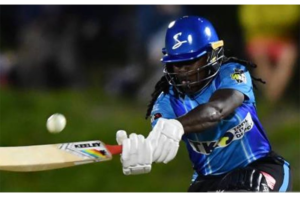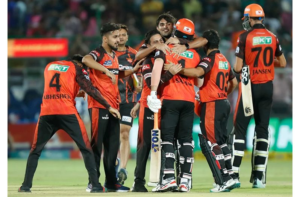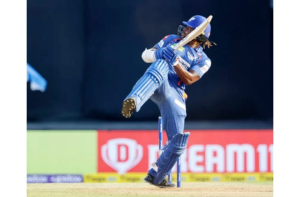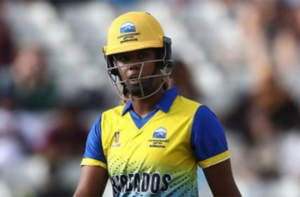“West Indies Masters / Veterans Cricket – Concepts & Progress so far”
The concept of West Indian ‘Veterans’ or ‘Masters’ Cricket teams, with age group separations; Over 40s; Over 50; Over 60s; is not new. Even when I, as a 23-year-old, started playing cricket for West Indies in 1976/77, some of the older players in that team; Roy Fredericks, Deryck Murray, David Holford and Clive Lloyd; were already keen to enact such continuing, situations for WI cricket.
Their thoughts were that, even if the retired players might not be playing Tests or One-Day Internationals, at the very least, their presence on the cricket fields and in the dressing rooms, could inspire, and educate, some of the younger, aspiring WI international cricketers. Why not? After all, there were always many vociferous assemblies of retired WI players around the cricket back then anyway, some in great positions as unofficial Coaches, Selectors, Liaison Officers or even Commentators.

Lance Gibbs, Sir Gary Sobers, Charlie Griffith, Sir Wes Hall, Jerry Gomez, Cammie Smith, Sir Everton Weekes, Sir Clyde Walcott, Sven “Charlie” Stayers, Easton Mc Morris, Seymour Nurse, Basil Butcher, Jackie Hendricks, Richard “Prof” Edwards, Clifford Mc Watt, Joe Solomon, Berkeley Gaskin, Charlie Davis, Bryan Davis, Michael “Joey” Carew, Pascal Roberts, Alfred Valentine, Sonny Ramadhin, Rohan Kanhai, Steven Camacho, Michael Findlay, J.K. Holt – are just some of the past illustrious WI cricketers whom I had met in only my first year of playing for West Indies in 1977. I have met many more since then.
I had played with some, for Guyana, and against a few too. Their suggestions and guidance have always been unbelievably invaluable. Others, like Sir Wes and Sir Clyde, had continued to play club cricket in Guyana, Trinidad & Tobago and Barbados long after their retirements from international cricket.
For whatever reasons, though, especially in the Caribbean, the concept of “Masters’ Cricket” never really caught on, even though some of those named; Basil Butcher, Joe Solomon, Bryan Davis, “Joey” Carey, “Prof” Edwards, Seymour Nurse and even J.K. Holt; were still sufficiently fit, had been still playing club cricket, and would come to our practice nets to do demonstrations and coaching. Those were great days, but West Indies has also been the only international cricket team which has not continued that concept of former international players playing regularly together after international retirements.
Fast forward to 1998. By then, I had been long retired from being a WI cricketer. I remember taking my late wife, Gail, to “play mass” in Trinidad & Tobago’s Carnival, with Peter Minshall’s massive competition-winning band “RED”, just hours before I boarded an aircraft to USA, thence to India, to be a part of an International Masters Cricket Tournament, with a pseudo-WI Masters team which included such players as Collis King, Joel Garner, Alvin Kallicharran, Sir Vivian Richards and Sir Gordon Greenidge.
Over the last twenty or so years, many presentations about Masters’ Cricket have circulated, some even being played in the Caribbean, but nothing sufficiently serious or continuous, until this recent effort by CWIMA – Cricket West Indies Masters’ Association – of which one product is “Big Man’s Cricket”.
I only became aware of the CWIMA by chance in 2022. I was reading an article on-line, published by Tony Mc Watt, son of late, former WI player Clifford Mc Watt, and whose publications cover WI cricket. On contacting him, I was put on to one of the main coordinators of CWIMA, Raj Singh.
I was then invited to attend, participate, and to lend some information and knowledge, from my cricketing past, to CWIMA, for an international tournament in Houston, Texas, USA, featuring West Indies Masters, USA Masters, Canada Masters and USA “A” Masters. Very pleasantly, and surprisingly, I was even awarded the honor of being an Ambassador.
That tournament in Houston in 2022 opened my eyes as to what CWIMA was really about. Yes, it is about much older cricketers playing the game that they have always loved. However, most of the players were not WI or any other internationals at all. Most were professionals in many other aspects of life not related to cricket. All that they really had in common was that they all had a yearning; a craving even; like Lord Alfred Tennison’s “The Lotos Eaters”; to continue sampling, playing, even painfully enjoying the game that they had all loved all of their lives; cricket.
The Caribbean has about seven million people overall. That means that there are also seven million team selectors, as everyone knows whom should be selected, including themselves. As my old WI team-mate Michael Holding once said: “Crofty, one of these days, West Indies will put out a cricket team of at least 165 players, since every territory will want their own XI playing!” Funny but true!
WIMA has made considerable progress since I become aware of the organization in early 2022, going to “World Cups” in South Africa and Australia, but the pools of age-group cricketers are way too small. A tremendous infusion of many players is needed, and necessary, if the concept is to survive well.
Most of the present CWIMA cricketers are probably well set in their professional lives, or retired, and probably well set financially too. Therefore, they can afford to absorb the nowadays astronomical personal costs just for that unique pleasure of travelling anywhere and playing anywhere.
While certainly applaudable, that is also quite dangerous, and can become even cantankerous too, since, having invested so many funds, everyone will want to play, regardless of abilities available and on display. That must bring about much discontent and aggravation.
For CWIMA to move onwards and upwards, with international tours to Australia, England and South Africa already completed, and proposals maybe for tours to India and other places, one situation is noticeably clear; the pools of age-group players must expand almost exponentially. Only then would a really strong, successful, continuing situation obtain, as there is always strength in vast numbers.
Real monetary sponsors must be found, so that many older players who may not be able to afford travel costs, can still be accommodated to take part, enjoy, and play well. If those sponsors could be found, as soon as possible, to finance teams and tours; not individuals; then CWIMA could be here to stay.






